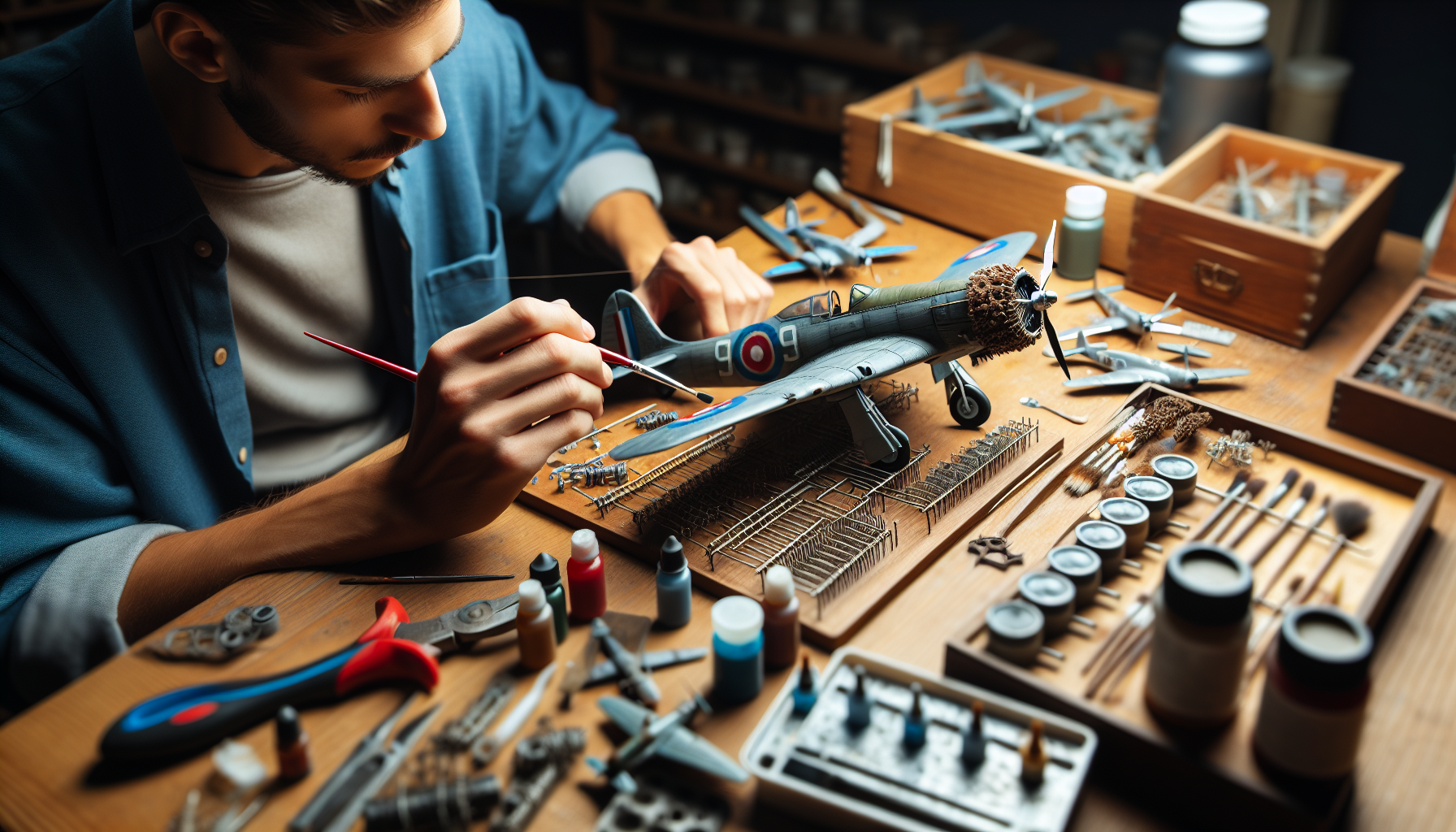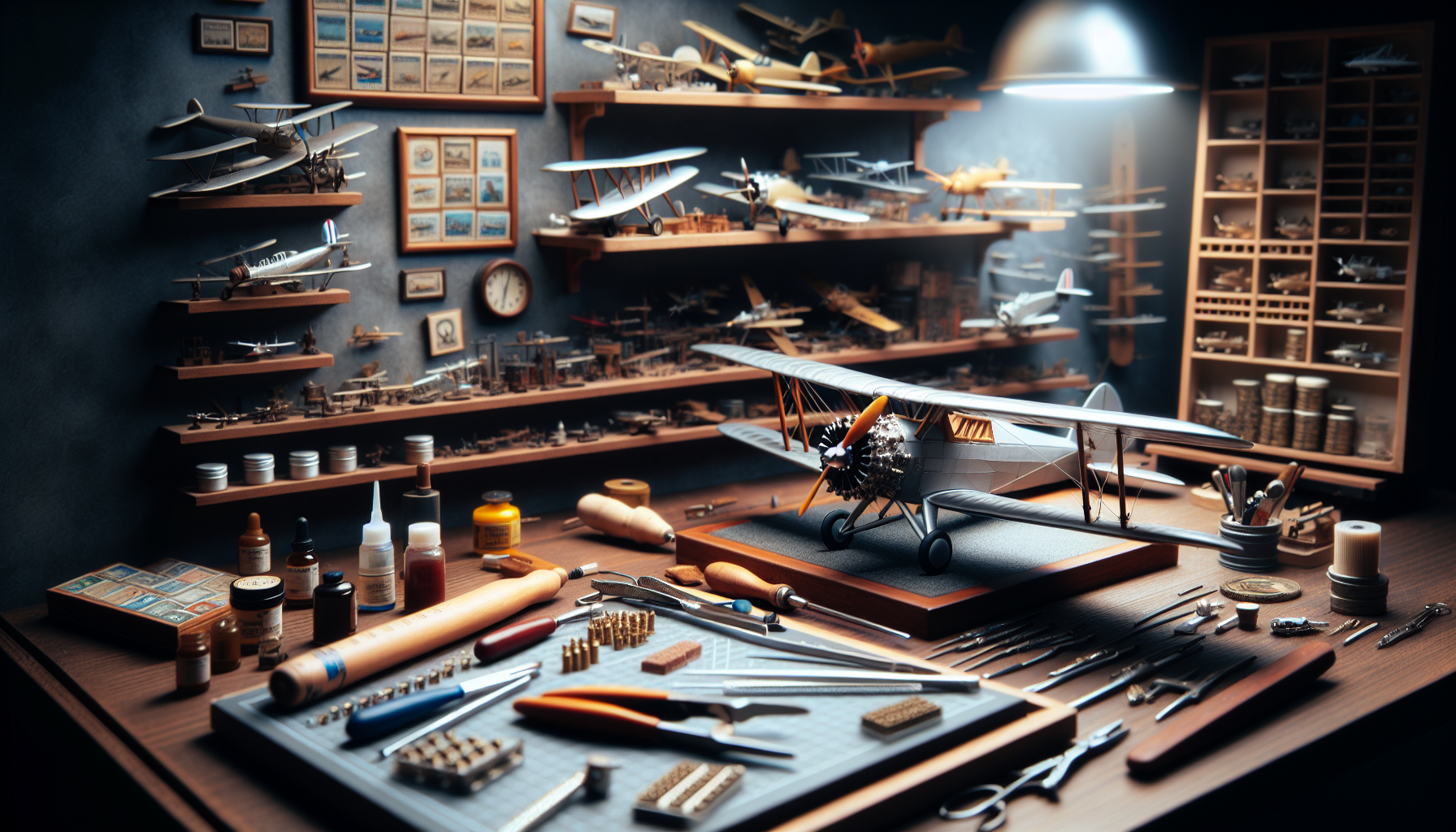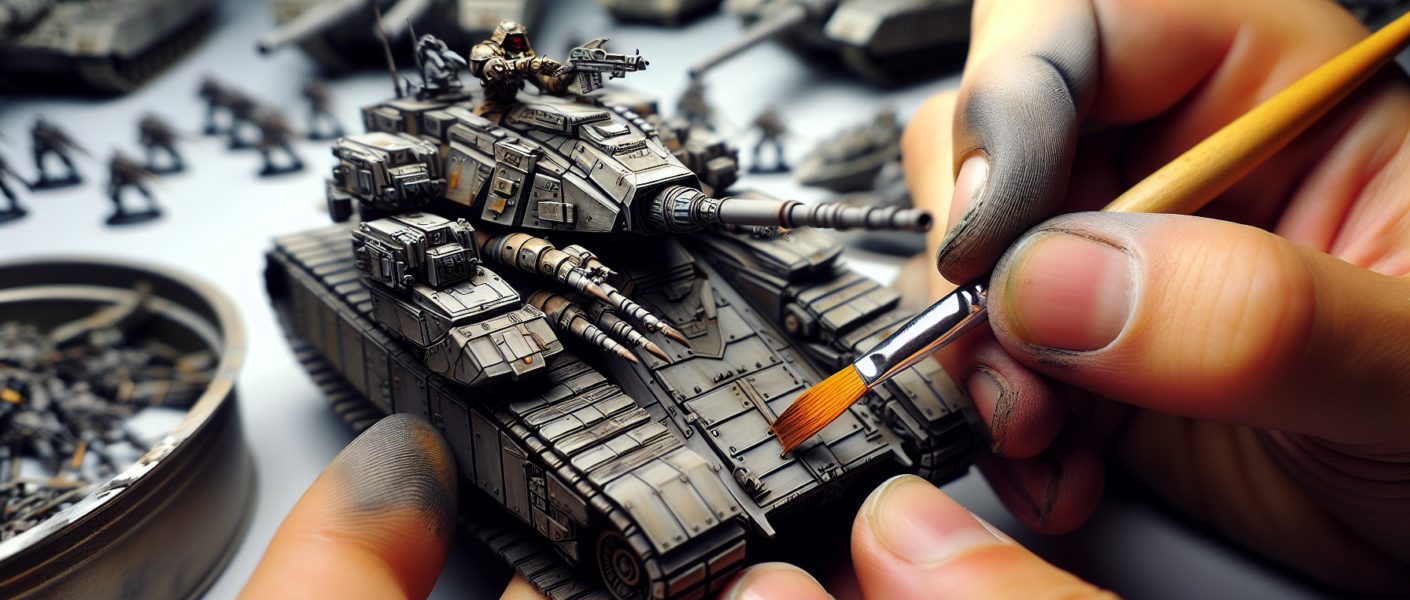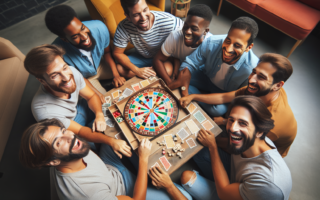Have you ever wondered why your boyfriend spends so much time on his hobbies like model building or collecting? It’s a common curiosity among partners, but fear not! There’s actually a simple explanation behind his passion. In this article, we’ll explore the reasons why your boyfriend dedicates countless hours to these activities, and how you can better understand and support his interests. So let’s dive in and uncover the secrets behind his hobby obsession, shall we?

The Importance of Hobbies
Hobbies play a crucial role in our lives, providing numerous benefits that contribute to our overall well-being and happiness. They serve as a wonderful escape, allowing you to recharge and find a sense of inner peace amidst the chaos of everyday life. In this article, we explore the various reasons why hobbies are important and shed light on the specific appeal of model building and collecting.
Hobbies as a Stress Relief
One of the primary benefits of engaging in hobbies is their ability to act as a powerful stress relief mechanism. When you immerse yourself in a hobby, whether it’s model building or collecting, you give your mind a break from the demands and pressures of daily life. This mental shift allows you to relax, unwind, and rejuvenate, promoting a sense of calm and serenity.
Hobbies as a Creative Outlet
Another aspect that makes hobbies so appealing is their capacity to serve as a creative outlet. Engaging in activities that involve creativity, such as model building, provides an opportunity to express yourself in a uniquely personal way. It allows you to explore your own ideas and ingenuity, fostering a sense of individuality and artistic expression.
Hobbies as a Form of Relaxation
Engaging in hobbies like model building or collecting can also transport you to a state of relaxation. The repetitive and methodical nature of these activities can have a soothing effect on the mind, helping to alleviate anxiety and tension. As you focus your attention on the intricate details involved in model building or the thrill of finding rare collectibles, you can find solace in the present moment.
Understanding the Appeal of Model Building and Collecting
Model building and collecting are two hobbies that have captured the hearts of enthusiasts worldwide. Let’s delve deeper into why these hobbies hold such appeal and what makes them such worthwhile pursuits.
Therapeutic Nature of Model Building
Model building, in particular, holds a significant therapeutic value. The meticulous process of constructing models requires careful attention to detail, patience, and precision. This repetitive nature of assembling and painting each part can be incredibly soothing, allowing you to escape from the stresses of everyday life and focus solely on the task at hand. As you witness your creation take shape, a sense of accomplishment and satisfaction washes over you, promoting a positive mental state.
Sense of Achievement and Mastery
Engaging in hobbies like model building or collecting brings about a sense of achievement and mastery. As you improve your skills and expand your knowledge in these areas, you become more confident and fulfilled. The feeling of completing a complex model or acquiring a rare collectible creates a sense of pride and empowers you to take on new challenges.
Historical and Educational Value
Model building and collecting often have a strong historical and educational component. Many individuals find joy in exploring and recreating historical moments through detailed models. Historical accuracy, research, and understanding of significant events become integral parts of these hobbies. By immersing yourself in this pursuit, you not only acquire knowledge but also foster a deeper appreciation for the past, thus enriching your own understanding of the world around you.

Psychological Factors Behind the Obsession
While hobbies like model building and collecting have undeniable appeal, some individuals develop a deep obsession with these activities. Understanding the psychological factors that contribute to this obsession can shed light on why your boyfriend spends hours dedicated to his hobbies.
Escaping from Reality
One possible reason your boyfriend immerses himself in his hobbies for hours on end is the desire to escape from the pressures and responsibilities of everyday life. Hobbies offer a means of stepping away from the challenges and demands of the real world, enabling individuals to create their own little havens where they can find solace and peace.
Fulfilling Childhood Fantasies
Engaging in hobbies can also provide an opportunity to fulfill childhood fantasies. For many individuals, hobbies like model building or collecting might evoke nostalgic memories of youth, when they marveled at intricate models or dreamt of amassing a vast collection. Pursuing these hobbies allows them to reconnect with their inner child and bring those long-held dreams to life.
Seeking Personal Identity and Purpose
Hobbies often become a significant part of an individual’s identity, providing a sense of purpose and belonging. By investing time and effort into their chosen hobbies, individuals are able to define themselves and connect with like-minded individuals who share their passion. Embracing these hobbies becomes a means of self-expression and self-discovery, contributing to a stronger sense of personal identity.
Personality Traits that Encourage Hobbies
Certain personality traits predispose individuals to embrace hobbies and find immense joy in pursuing them. Let’s explore the key traits that often fuel a deep passion for hobbies like model building or collecting.
Detail-Oriented and Patient
Hobbies that demand attention to detail and patience tend to attract individuals who possess these traits. The intricate nature of model building, for example, requires a keen eye for detail and the ability to work meticulously. Those who naturally possess these qualities often gravitate towards hobbies that allow them to exercise and indulge in their precise and patient nature.
Curiosity and Passion for Knowledge
A genuine curiosity and a passion for knowledge are common traits among hobby enthusiasts. Model building and collecting are often fueled by a desire to learn more about specific subjects, whether it’s historical events, engineering principles, or the intricacies of design. The joy of acquiring new knowledge and expanding one’s understanding serves as a driving force behind these pursuits.
Joy in Pursuit of Perfection
Hobbies that involve creativity and craftsmanship often appeal to individuals who derive joy from the pursuit of perfection. The relentless pursuit of excellence becomes a fulfilling endeavor, allowing hobbyists to continually push their boundaries and explore new possibilities. This joy in the pursuit of perfection drives their dedication and enables them to create remarkable works of art or build vast collections.

The Role of Rewards and Fulfillment
Engaging in hobbies brings about intrinsic and extrinsic rewards that contribute to an individual’s overall fulfillment and satisfaction. Let’s explore the different ways these hobbies provide both immediate gratification and long-term fulfillment.
Immediate Gratification
Hobbies like model building or collecting offer immediate gratification through the process itself. As you focus on assembling a model or find a rare collectible, a sense of excitement and accomplishment arises. The act of engaging with your hobbies brings you joy in the present moment, providing an instant boost in your mood and overall well-being.
Long-Term Satisfaction and Pride
In addition to immediate gratification, hobbies also offer long-term satisfaction and pride. As you invest time and effort into your chosen hobby, you continually improve and achieve new milestones. Each completed model or added collectible becomes a testament to your dedication and expertise, fostering a sense of fulfillment and pride that can last a lifetime.
Building Social Connections through Shared Interests
Engaging in hobbies like model building or collecting often leads to the formation of meaningful social connections. By participating in hobby groups or attending events centered around these activities, you have the opportunity to meet like-minded individuals who share your passion. These shared interests form the basis for friendships and social interactions, providing a sense of community and support.
Hobbies as a Form of Self-Care
In our fast-paced and demanding lives, taking care of ourselves is essential. Hobbies serve as a form of self-care, helping us maintain our mental health, balance work and personal life, and boost our self-esteem and confidence.
Maintaining Mental Health
Engaging in hobbies is a powerful tool for maintaining good mental health. By immersing ourselves in activities that bring us joy and allow us to take a break from daily stressors, we create space for relaxation, enjoyment, and rejuvenation. Hobbies act as a form of therapy, giving us a much-needed escape from the pressures of life, promoting mental well-being, and reducing the risk of burnout.
Balancing Work and Personal Life
Hobbies provide an opportunity to strike a healthy balance between work and personal life. In a world that often encourages a constant focus on productivity and achievement, hobbies remind us to prioritize leisure and self-expression. By dedicating time to our hobbies, we carve out space for personal growth, creativity, and enjoyment outside of our professional responsibilities.
Boosting Self-Esteem and Confidence
Participating in hobbies can have a profound impact on our self-esteem and confidence. As we pursue activities that we are passionate about and invest time and effort in honing our skills, we experience personal growth and a heightened sense of achievement. The sense of mastery and competence that arises from engaging in these hobbies boosts our self-esteem and provides a comforting reminder of our capabilities.

Potential Concerns and Communication
While hobbies can bring immense joy and fulfillment, it’s essential to address potential concerns that may arise, especially in relationships. Open communication and understanding are key to navigating these challenges and ensuring a healthy balance between hobbies and personal relationships.
Addressing Imbalance in Relationships
Imbalances in the time and attention given to hobbies versus the relationship can lead to tension and frustration. It’s important to openly communicate your feelings and concerns with your partner, expressing your need for quality time together. Finding a compromise and setting boundaries that allow both partners to pursue their hobbies and enjoy their relationship is crucial for maintaining a healthy balance.
Setting Boundaries and Compromises
Openly discussing and setting boundaries around hobbies can help alleviate concerns and ensure that each partner’s needs are met. Agreeing on dedicated times for hobbies and quality time together can help establish a healthy routine and ensure that both partners feel valued and supported in their individual pursuits.
Open Dialogue for Understanding
Maintaining open lines of communication is vital in relationships where hobbies play a significant role. By discussing the reasons behind your partner’s dedication to their hobbies, you can gain a deeper understanding of their needs and passions. Engaging in open dialogue allows both partners to express themselves, fostering empathy and a greater appreciation for each other’s interests.
Supporting and Encouraging Hobbies
Supporting and encouraging your partner’s hobbies is a beautiful way to foster a loving and nurturing relationship. Here are some ways you can actively show your support and create an environment that cultivates personal growth and exploration.
Sharing Interests and Participating
One of the best ways to support your partner’s hobbies is by showing genuine interest and actively participating. Whether it’s attending model building exhibitions or exploring antique shops together, engaging in activities related to their hobbies strengthens the bond between partners and creates shared memories.
Creating a Supportive Environment
Creating a supportive environment at home is crucial for cultivating a healthy hobby-driven lifestyle. This includes setting up dedicated spaces for hobbies, providing necessary resources and tools, and respecting each other’s boundaries and time commitments. By fostering an atmosphere of support and understanding, you enable your partner to fully embrace their hobbies and feel comfortable pursuing their passions.
Encouraging Personal Growth and Exploration
Encouraging your partner’s personal growth and exploration within their hobbies is an incredibly supportive gesture. Recognize and celebrate their milestones, provide constructive feedback, and offer encouragement during challenging times. By being their biggest cheerleader, you not only strengthen your connection but also inspire them to achieve new heights within their chosen pursuits.

Navigating Challenges Together
Relationships often involve navigating challenges hand in hand, and dealing with hobby-related issues is no exception. By approaching these challenges as a team, you can foster a stronger relationship and discover new shared hobbies along the way.
Finding Common Ground
Finding common ground between your partner’s hobbies and your own can provide a wonderful opportunity for shared experiences and mutual enjoyment. Discovering activities that blend both of your interests can help you create new memories while respecting and appreciating the hobbies that make each of you unique.
Discovering New Shared Hobbies
Engaging in the exploration of new hobbies together can be an exciting journey for couples. By venturing into uncharted territory, you expose yourselves to new experiences, allowing your relationship to evolve and grow. Whether it’s taking up a dance class or trying out a new outdoor activity, these shared hobbies can strengthen your bond and create lasting memories.
Supporting Each Other’s Passions
Supporting each other’s passions extends beyond merely tolerating them. Truly embracing your partner’s hobbies as an integral part of who they are can deepen your connection and foster a nurturing and loving environment. By actively engaging with and encouraging their passions, you demonstrate your unwavering support and love, creating a partnership that thrives on mutual respect and understanding.
Seeking Professional Help if Needed
In some cases, concerns related to hobbies can have a deeper impact on the relationship and require professional guidance. Recognizing when to seek help is crucial for maintaining a healthy and fulfilling partnership.
Identifying Obsessive Behaviors
It’s important to distinguish between healthy dedication to hobbies and obsessive behaviors that may have a negative impact on the relationship. If your partner’s hobbies consume their life to an unhealthy extent, causing withdrawal from social interactions, neglect of responsibilities, or strained relationships, it might be necessary to seek professional help to address the underlying issues.
Understanding Psychological Factors
Seeking professional help can provide valuable insights into the psychological factors driving obsessive behaviors related to hobbies. A trained therapist or counselor can help both partners understand the root causes behind the excessive dedication to hobbies and work towards finding a healthy balance that respects both individual passions and the relationship.
Relationship Counseling for Improved Understanding
Relationship counseling can be incredibly beneficial for couples struggling to find common ground and navigate challenges related to hobbies. By engaging in therapy together, you embark on a journey of improved communication, understanding, and compromise. A skilled therapist can provide guidance and facilitate productive discussions, helping both partners find harmonious ways to incorporate hobbies into their lives while maintaining a strong and healthy relationship.
In conclusion, hobbies hold immense importance in our lives. They act as stress relievers, creative outlets, and sources of relaxation. Understanding the appeal of hobbies like model building and collecting illuminates the therapeutic nature, sense of achievement, and historical value they provide. Psychological factors such as escaping from reality and seeking personal identity also contribute to the appeal of these hobbies. Personality traits like being detail-oriented, curious, and passionate for knowledge further encourage hobbies. Rewards and fulfillment, in terms of immediate gratification, long-term satisfaction, and building social connections, make hobbies rewarding experiences. Moreover, hobbies play a crucial role in self-care by maintaining mental health, balancing work and personal life, and boosting self-esteem and confidence. Addressing concerns through communication, setting boundaries and compromises, and open dialogue is essential for a healthy balance between hobbies and relationships. By supporting and encouraging each other’s hobbies, navigating challenges together, and seeking professional help when needed, couples can foster a loving and fulfilling relationship that embraces and respects individual passions. So, the next time you wonder why your boyfriend spends hours on his hobbies like model building or collecting, remember the significant importance and benefits they bring to his life and your relationship.



